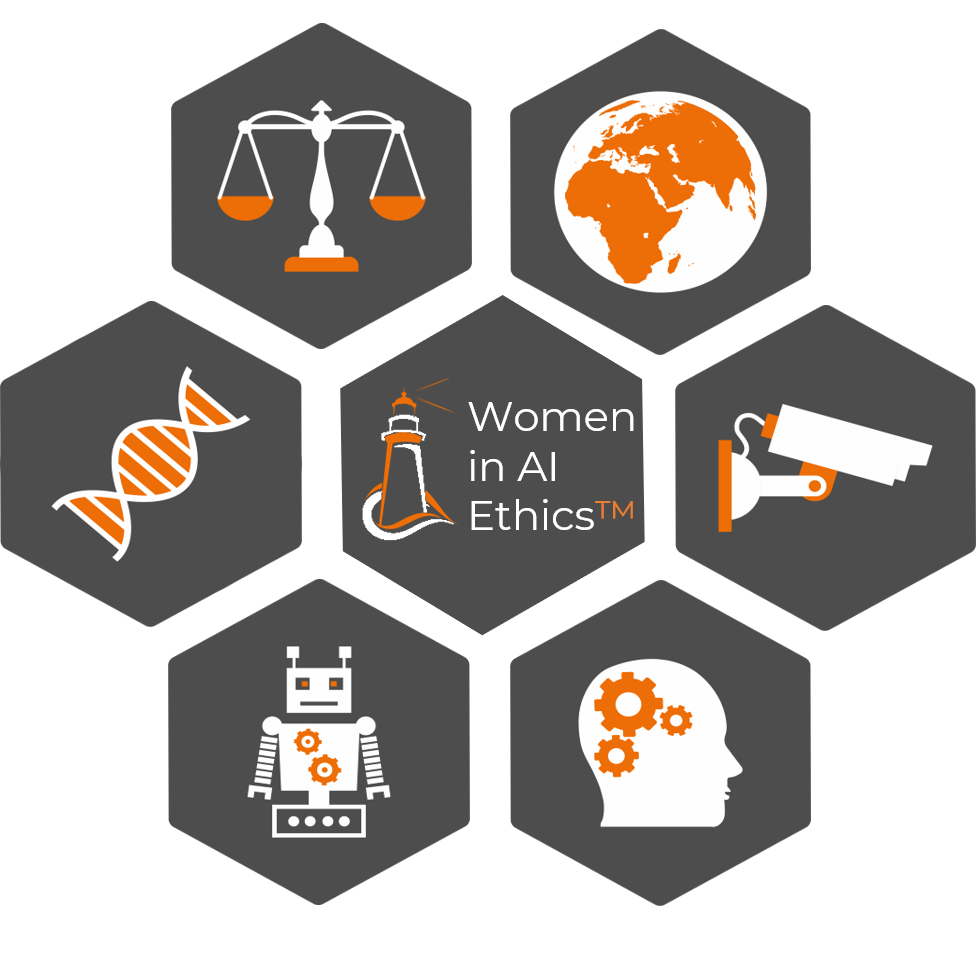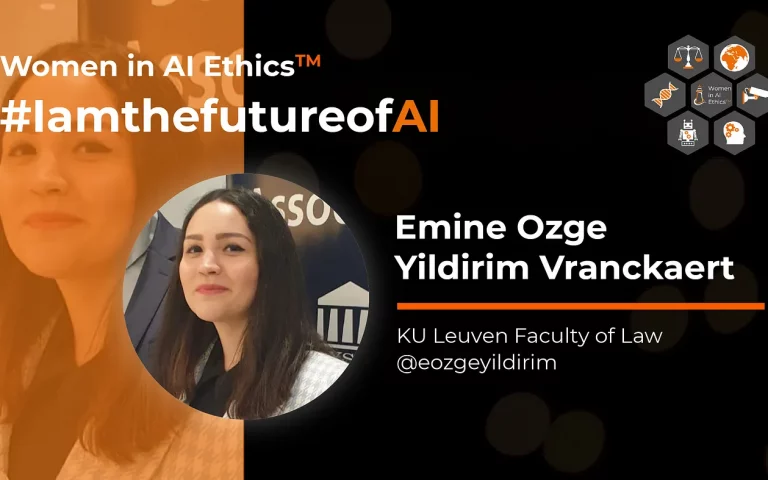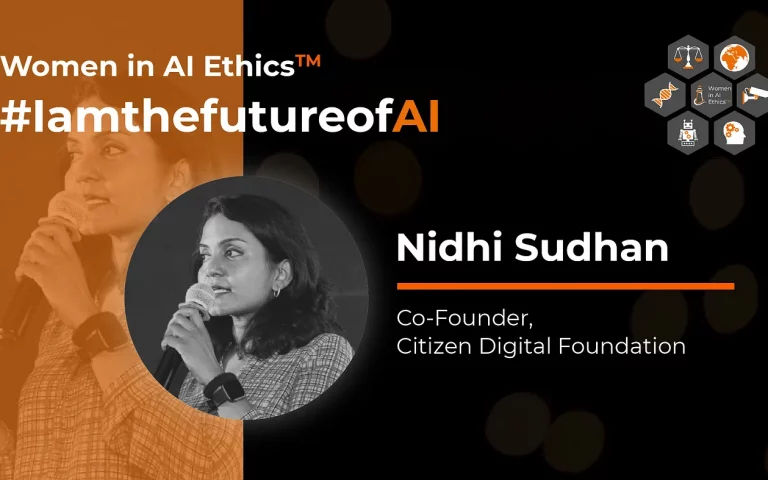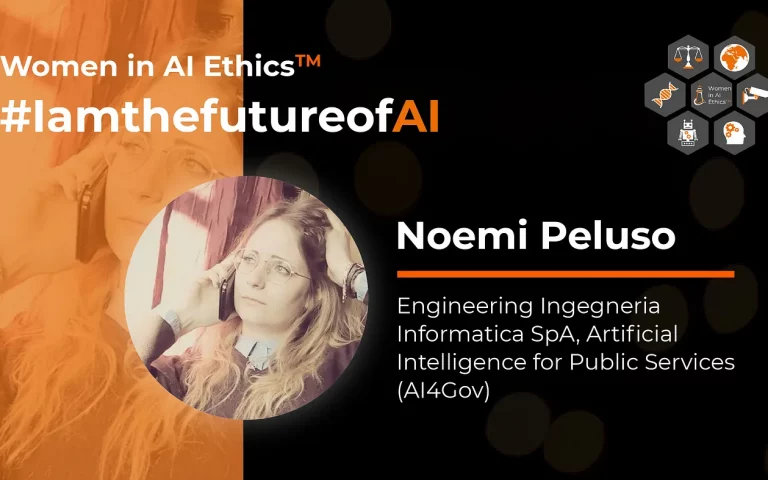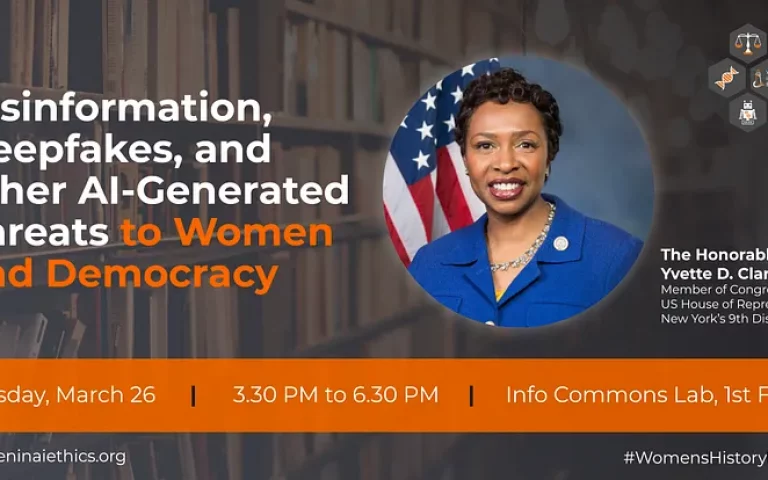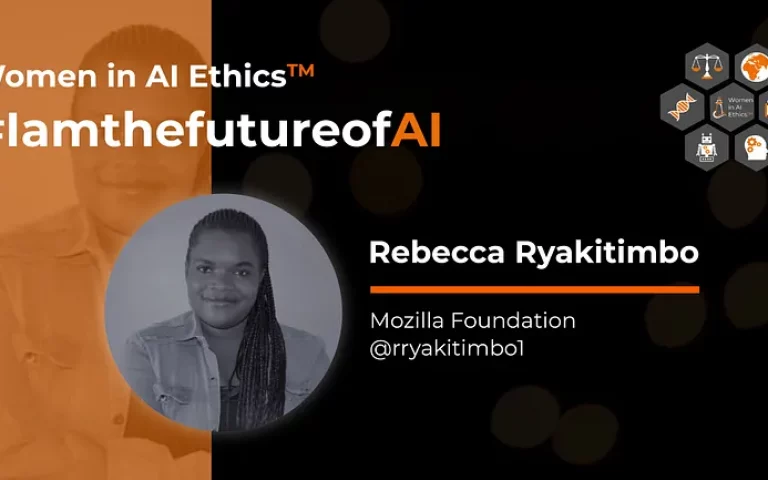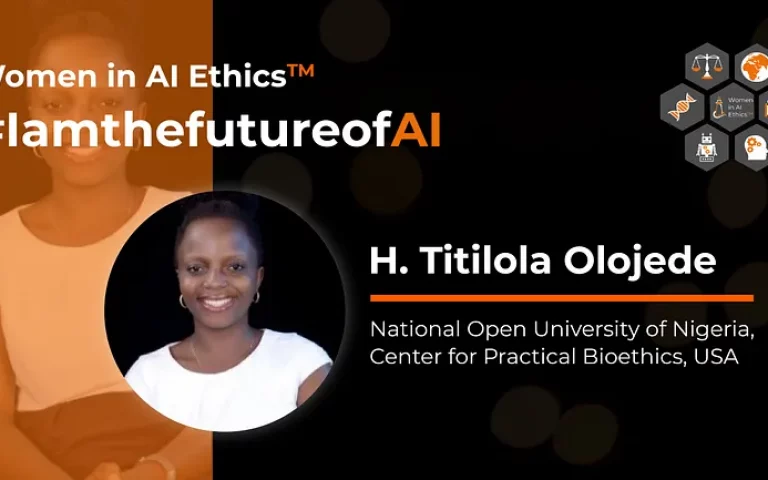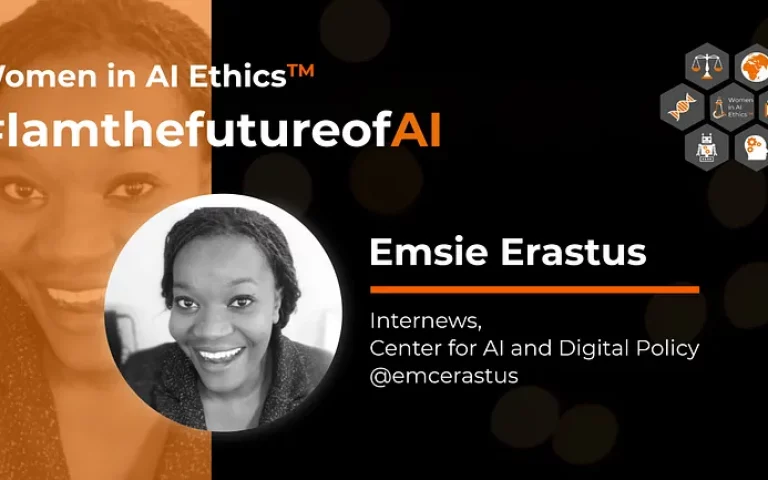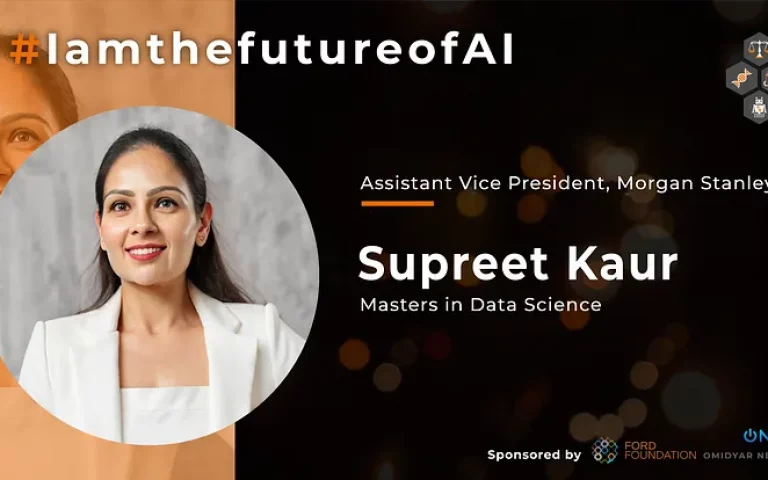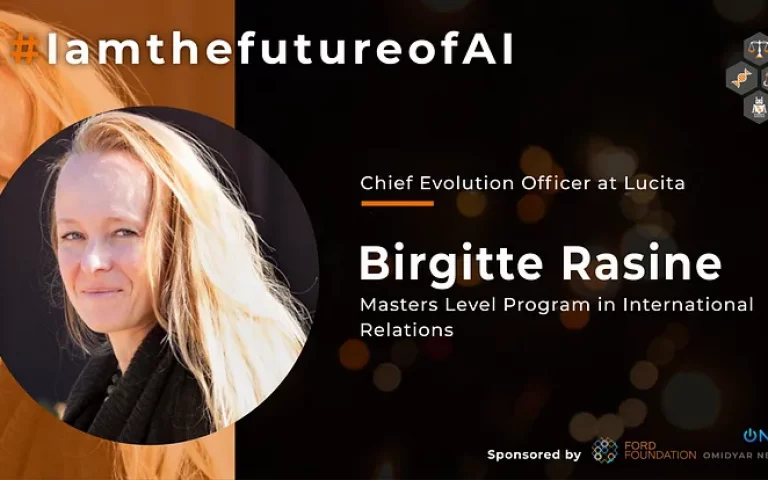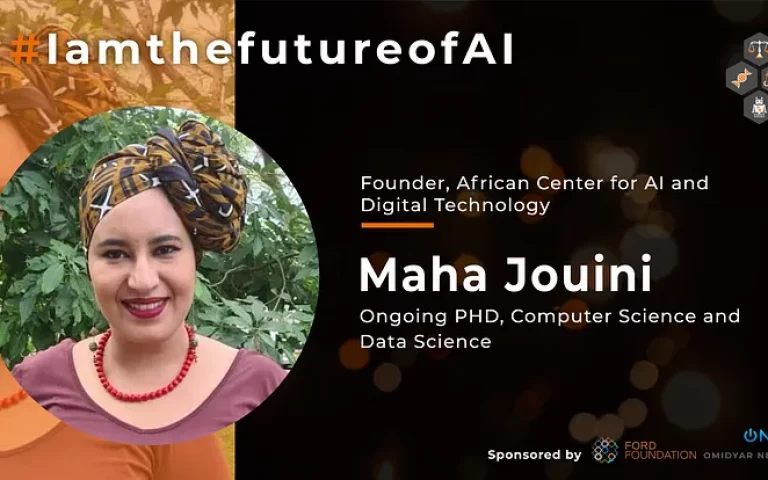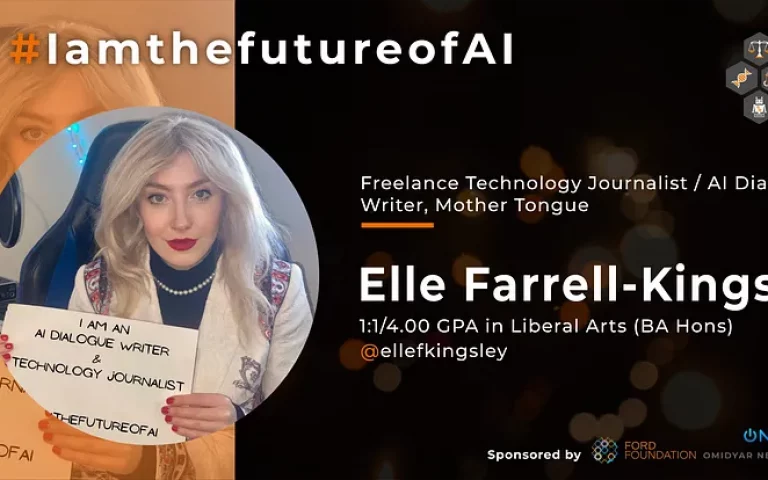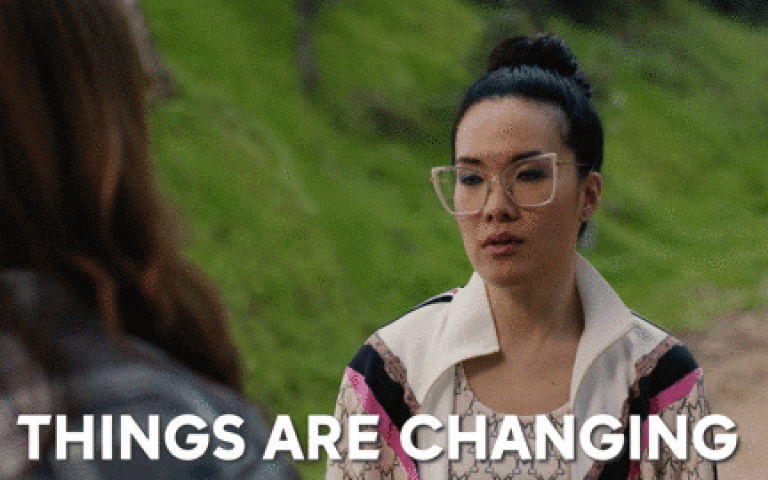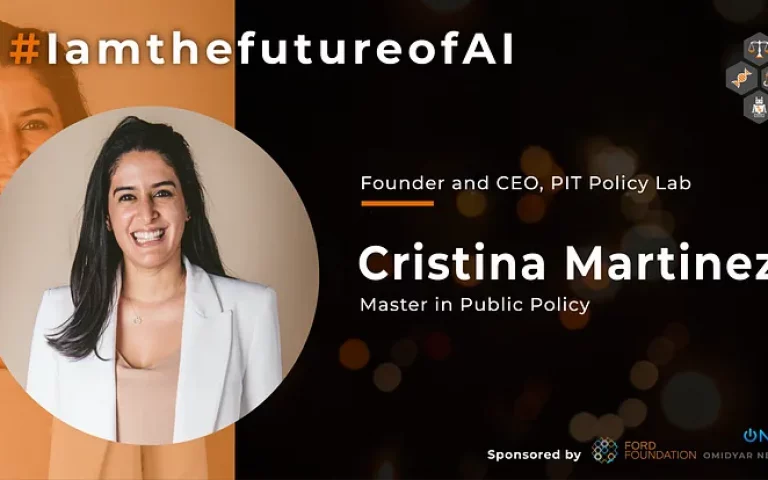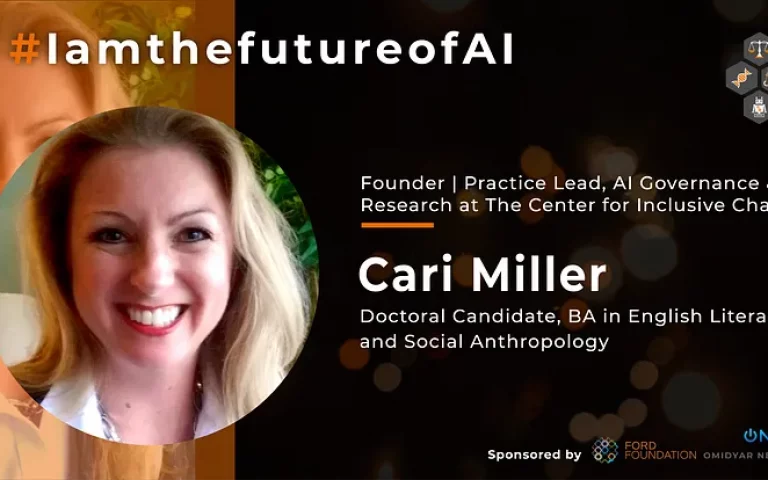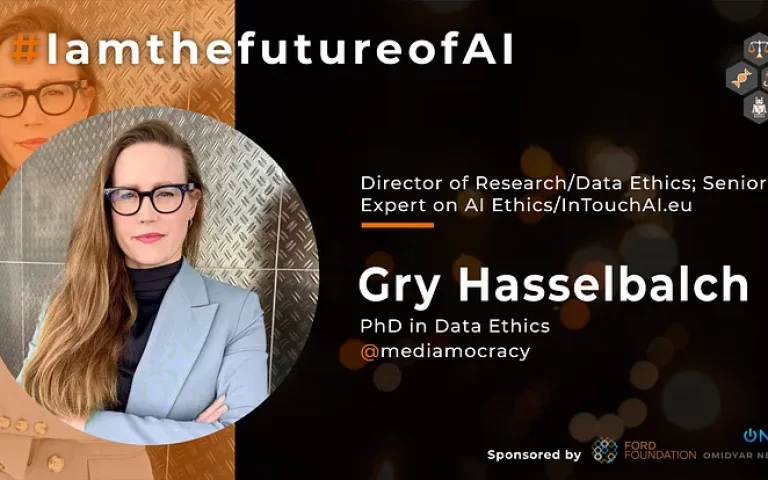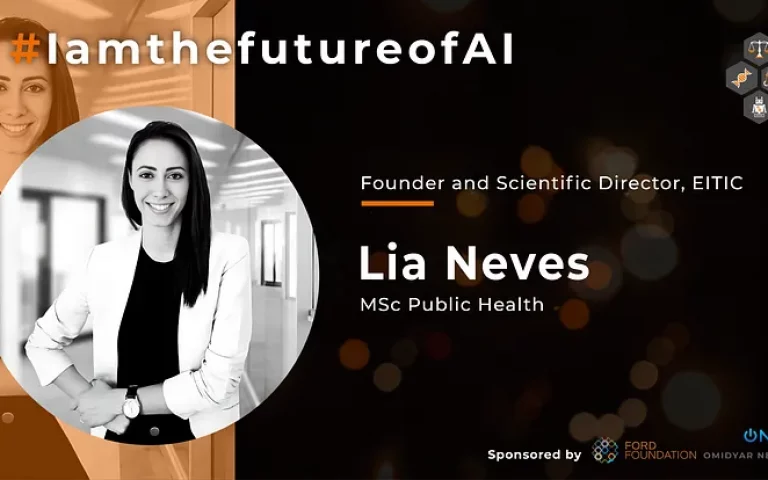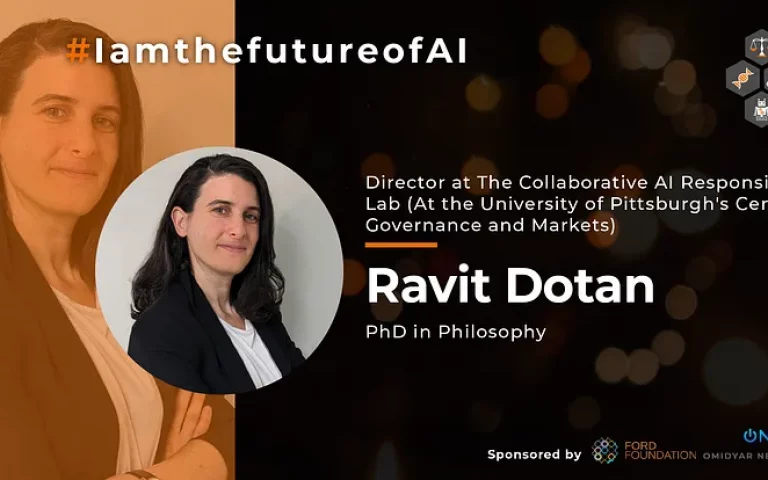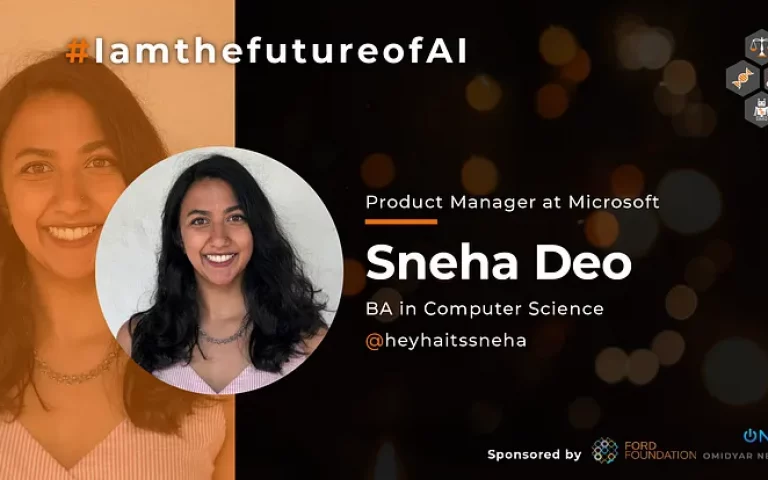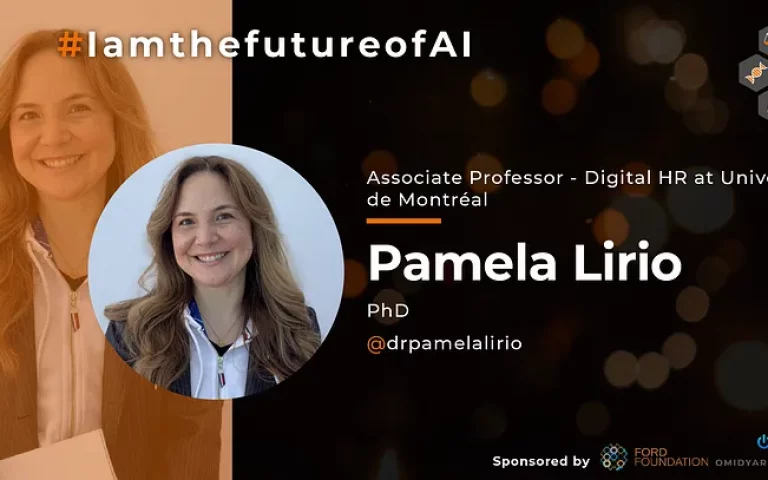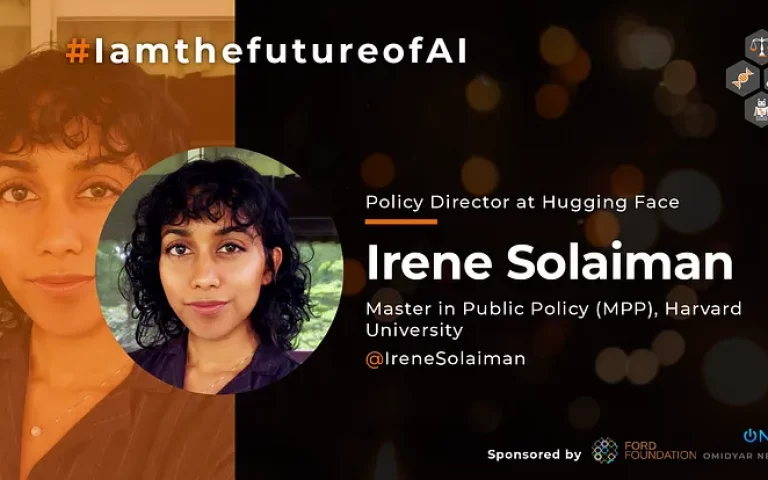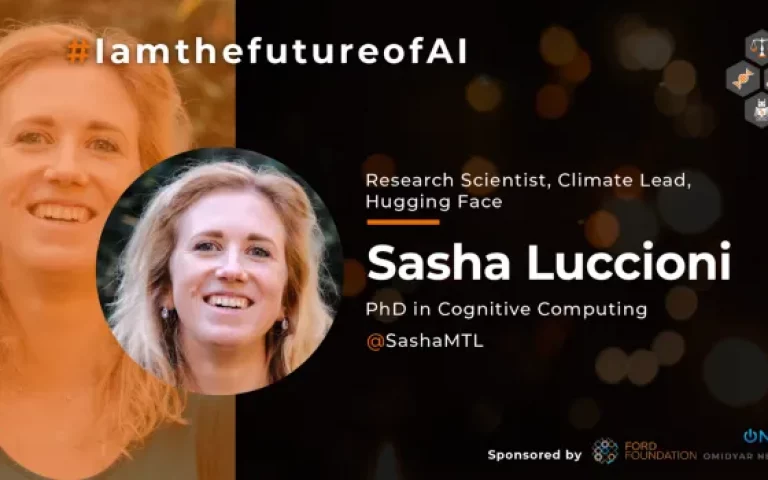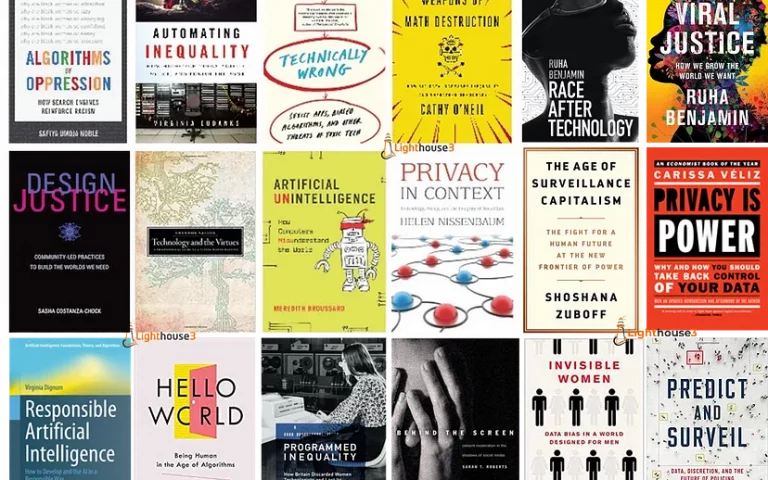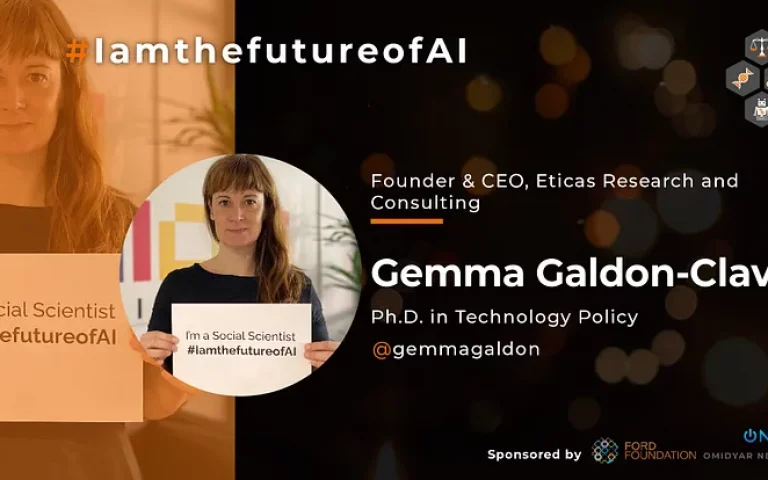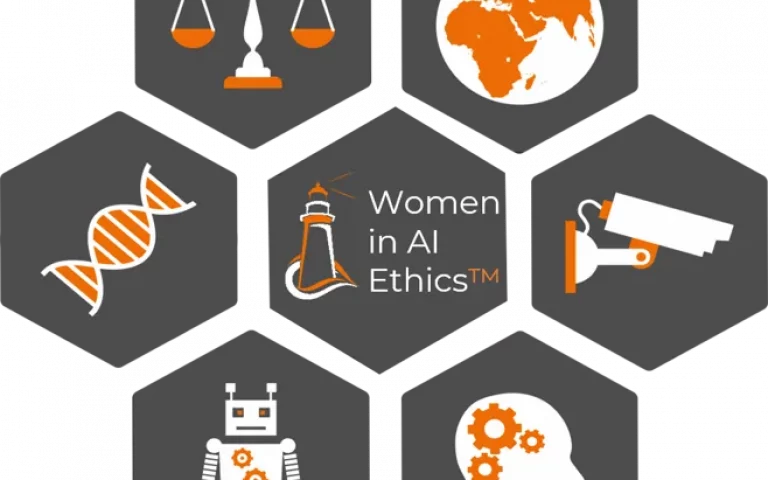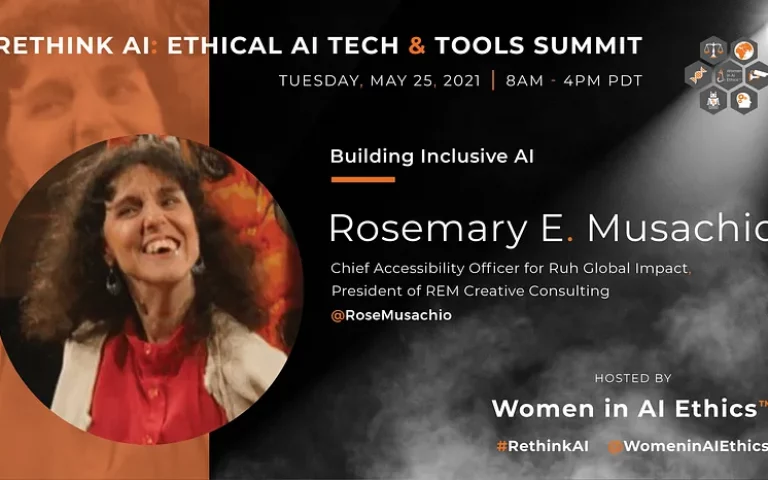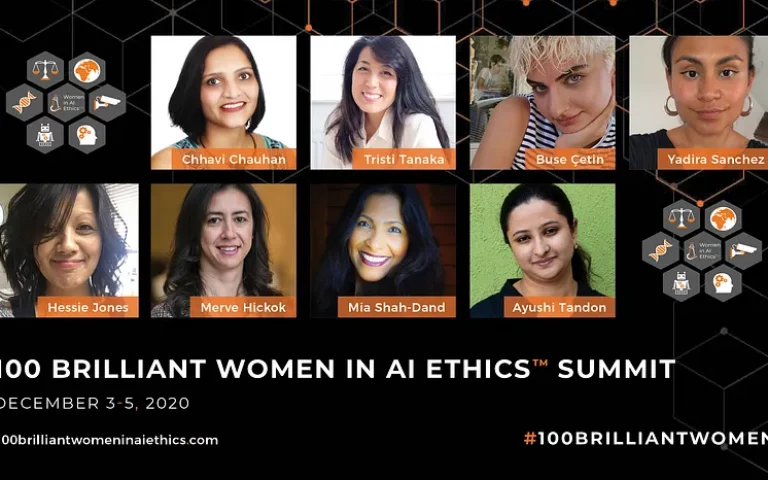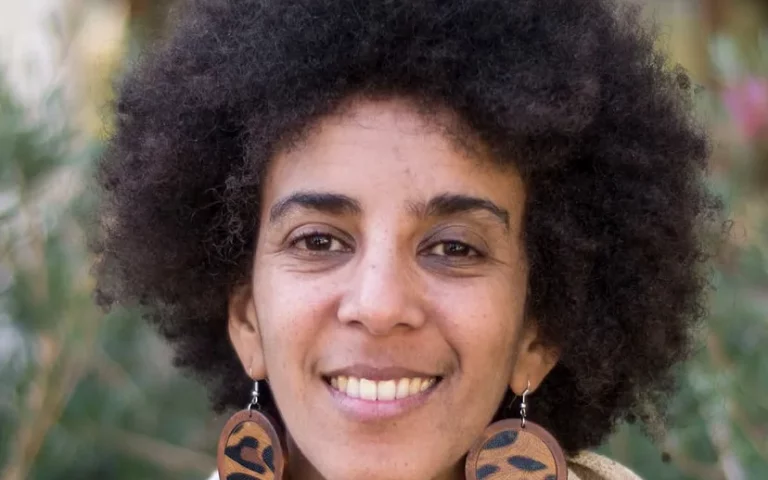Temi’s journey in the AI space is quite unique. She currently does freelance work and is involved with funders and organizations in the tech policy space and is a huge advocate for using AI for good.
Check out her interview below as she talks about when and how she began her AI journey, where she is now, and some great nuggets of wisdom for those interested in joining the field of AI.
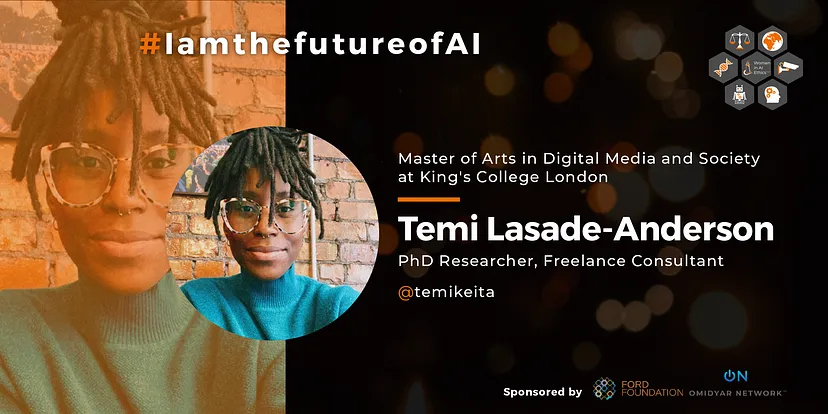 This interview is part of Women in AI Ethics (WAIE)’s “I am the future of AI” campaign launched with support from the Ford Foundation and Omidyar Network to showcase multidisciplinary talent in this space by featuring career journeys and work of women as well as non-binary folks from diverse backgrounds building the future of AI. By raising awareness about the different pathways into AI and making it more accessible, this campaign aspires to inspire participation from historically underrepresented groups for a more equitable and ethical tech future.
This interview is part of Women in AI Ethics (WAIE)’s “I am the future of AI” campaign launched with support from the Ford Foundation and Omidyar Network to showcase multidisciplinary talent in this space by featuring career journeys and work of women as well as non-binary folks from diverse backgrounds building the future of AI. By raising awareness about the different pathways into AI and making it more accessible, this campaign aspires to inspire participation from historically underrepresented groups for a more equitable and ethical tech future.
Can you share an incident that inspired you to join this space?
After working as a digital strategist in paid social and programmatic advertising for a few years I felt a bit concerned about the ethical/legal nature of the work we were doing (back in the early 2010s which were “wild” for online advertising) and I felt as though I wanted to somehow use my skills for “good,” which eventually saw me enter the digital rights and tech policy space in advocacy and campaigning.
How did you land your current role?
I’m currently a freelancer and I work with funders and organisations in the broad tech policy space on advocacy and campaigning. I got into this field because of my experience on the platform side, which I think really helped because not a lot of people in the field at the time had hands-on experience with regard to online ads/surveillance ad tech.
What kind of issues in AI do you tackle in your day-to-day work?
In my day to day, I don’t really, but in my freelance work, it’s on algorithmic injustice and other tech harms.
If you have a non-traditional or non-technical background, what barriers did you encounter and how did you overcome them?
My background is a bit mixed. I found that the field is incredibly gatekept and privileges those who have a MA or policy experience regardless of the field.
Why is more diversity — gender, race, orientation, socio-economic background, other — in the AI ethics space important?
Personally, I don’t think of representation politics as liberatory on its own. However, the status quo is that people who do not feel the brunt of any oppression are leading and shaping AI and have no real conception of potential harm because they’ve not experienced them. Part of the reason tech policy civil society in Europe is unable to move beyond the normativity of AI is because “AI ethics” and inclusion are seen as add-on options, not default necessities.
What is your advice to those from non-traditional backgrounds who want to do meaningful work in this space on how to overcome barriers like tech bro culture, lack of ethical funding/opportunities, etc.?
Alongside keeping your finger on the different debates, I would say “Be so loud they can’t ignore you.” Follow folks with a similar background to your work or your desired work. Add your voice to the debate(s) via social media or a blog. Take free or discounted courses in policy to learn the “language” of the field.
Temi Lasade-Anderson is a PhD student in the Department of Culture, Media, and Creative Industries at King’s College London, conducting exploratory research on Black women’s digital intimacy. Her research interests are race, identity and social media, social media subcultures; online relationality, and platform governance. She was the recipient of Cardiff University’s department of Journalism, Media and Culture, best MA Dissertation prize (2022), for her research on Black British women’s confessional vlogs. Her work has been published in Feminist Media Studies. Alongside her PhD, Temi is a tech policy strategist and founder at alaàṣẹ, a black feminist internet lab that creates media and research for Black women’s digital lives.
Connect with her on Twitter @temikeita.
